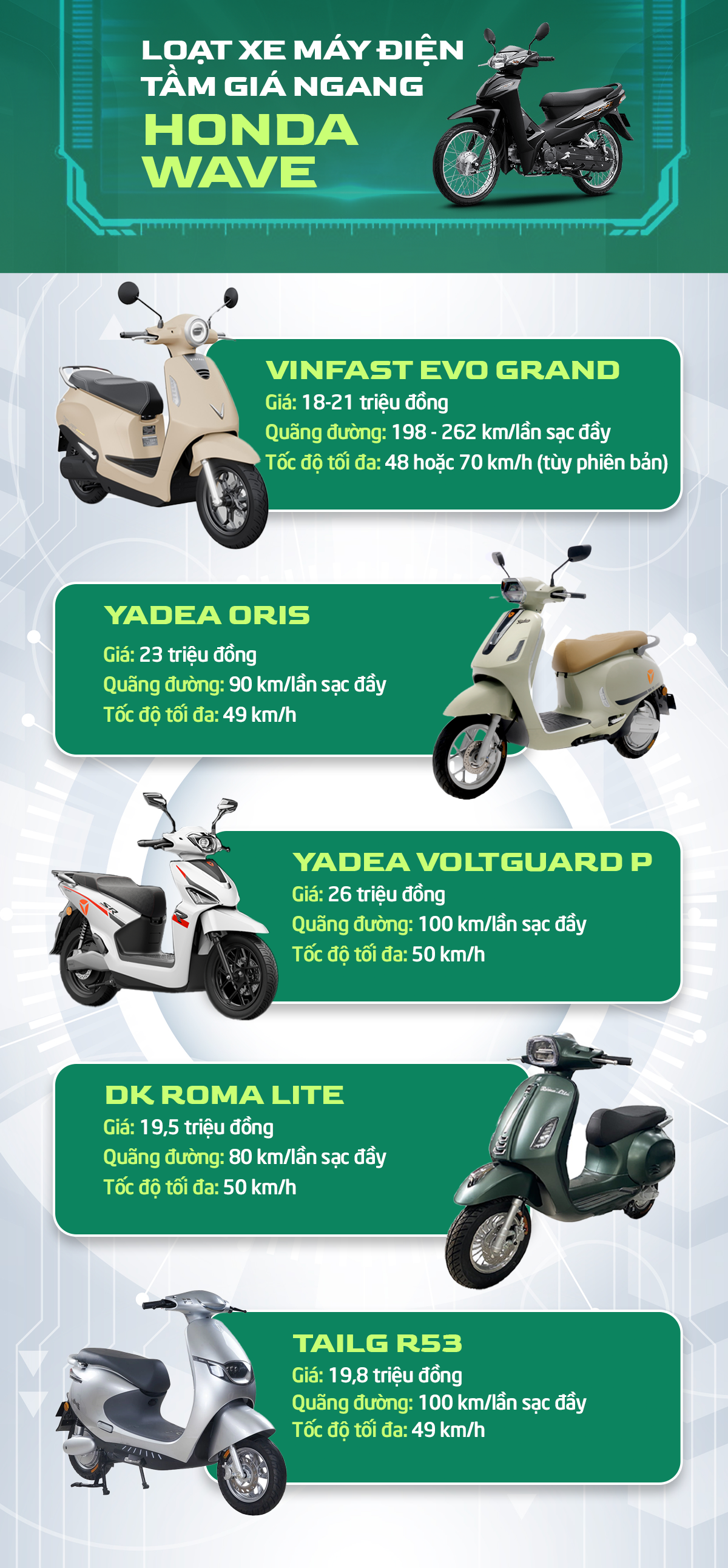As per the roadmap outlined in Directive 20/CT-TTg, from July 1, 2026, Hanoi will begin banning gasoline-powered motorbikes within Ring Road 1, gradually expanding to Ring Road 2 in 2028 and Ring Road 3 by 2030.
Ho Chi Minh City is also accelerating its transition, aiming to replace 400,000 gasoline-powered motorbikes of ride-hailing drivers with electric vehicles between 2026 and 2029. Notably, from January 1, 2026, ride-hailing drivers using gasoline-powered vehicles will not be allowed to register on ride-hailing and delivery platforms.
With the deadline for the vehicle transition approaching, a range of supportive policies have been introduced, including tax exemptions, preferential loans, and incentives for each electric trip completed. Against this backdrop, consumers are increasingly interested in affordable electric motorbike models with low operating costs that suit their daily commuting needs.
With a budget of just VND 16-26 million – equivalent to a common Honda Wave motorbike – consumers can now choose from a variety of new electric motorbike models on the market. This is a reasonable solution not only for students and urban workers but also for ride-hailing drivers who need to switch to electric vehicles as per the city’s directive.

The Storm’s Silver Lining: Hanoi Waives Taxes for Those Affected by Typhoon Yagi
The Hanoi Tax Department has announced tax extension, exemption, and reduction policies for businesses and taxpayers affected by Storm Yagi.



















